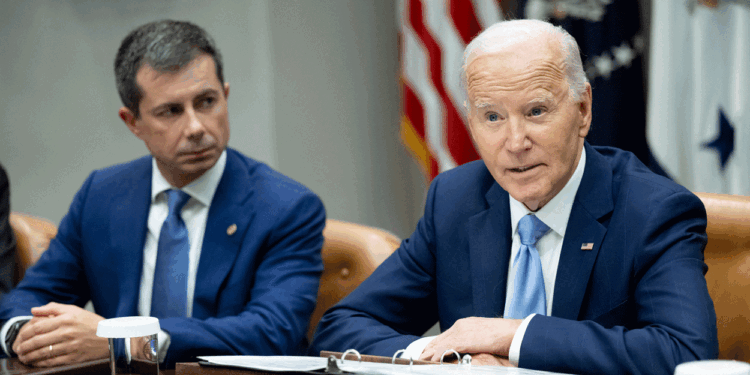The Biden administration spent four years placing a record level of new regulatory impediments on the nation’s airlines. An analysis by the Office of Management and Budget estimates that former President Joe Biden’s transportation secretary, Pete Buttigieg, nearly tripled the number of transportation-related rules and regulations.
There’s no evidence that all this added red tape made airline travel safer or reduced flight delays.
Biden should have learned from the airline deregulations of the late 1970s, which liberated airlines from government controls on pricing and flight routes. A famous study by Robert Crandall of the Brookings Institution found that those reforms ushered in the modern era of air travel with much lower prices and hundreds of billions of dollars of savings for consumers over the past four decades.
Buttigieg, by contrast, blundered on nearly every major issue he faced. He bungled the proposed JetBlue merger with Spirit Airlines, a disastrous decision that landed Spirit Airlines in bankruptcy and left JetBlue struggling. This has led to less competition, not more.
Buttigieg also tried to restrict popular award miles programs that save money on airfares and reward passengers with flight upgrades. He’s imposed new penalties on airlines for flight delays—even when it wasn’t the fault of the airline.
The Biden-Buttigieg philosophy was that airlines were ripping off passengers and gobbling up profits. The truth is the opposite: Airline fares have remained reasonably low compared to the rapid inflation in food, energy, and housing costs.
The average inflation-adjusted airfare is down nearly 20% from pre-pandemic 2019—when airfares were already the lowest on record. In fact, airfares are one of the only major categories of consumer spending that has fallen on an inflation-adjusted basis. That’s not the sign of an industry price-gouging consumers.
Here’s a financial reality about this industry that few of the politicians and regulators seem to understand: Airlines have huge fixed costs and operate on small margins—which, even in the best years for airlines, lag the average profit margin in other industries.
If United, American and Delta relied solely on ticket revenues, the airlines would either go bankrupt, restrict flights, or have to start charging much higher fares.
Thankfully, the Trump administration under Department of Transportation Secretary Sean Duffy is charting a different course. The Department of Transportation has announced it will not implement the Biden-era proposal requiring airlines to pay European-style compensation for delays and cancellations and is canceling attempts to restrict airline credit card reward points.
One unresolved issue is what to do about flight delays and cancellations.
As a frequent flyer myself, I hate flight delays—which are more common than ever. What should be done? Reasonable compensation to passengers—except in cases where the flight delays are beyond the airline’s control—should be standard policy. Some airlines offer better compensation than others.
Rather than impose government mandates, let the market work. Airlines should announce what their delay policy is. All but one of the U.S. airlines already provide complimentary hotel accommodations when flights are delayed overnight. Modest Federal Aviation Administration fines or payments to customers should be required for long flight delays or cancellations when the airline itself is to blame.
The 1970s deregulation of the skies was a success that virtually all economists and passenger groups applaud. President Donald Trump’s transportation agenda under Duffy is: Airline Deregulation, The Sequel. The results will be better service and lower costs for tens of millions of American passengers and a more profitable and stable future for our vital airline industry.
Originally published by Fox News

















